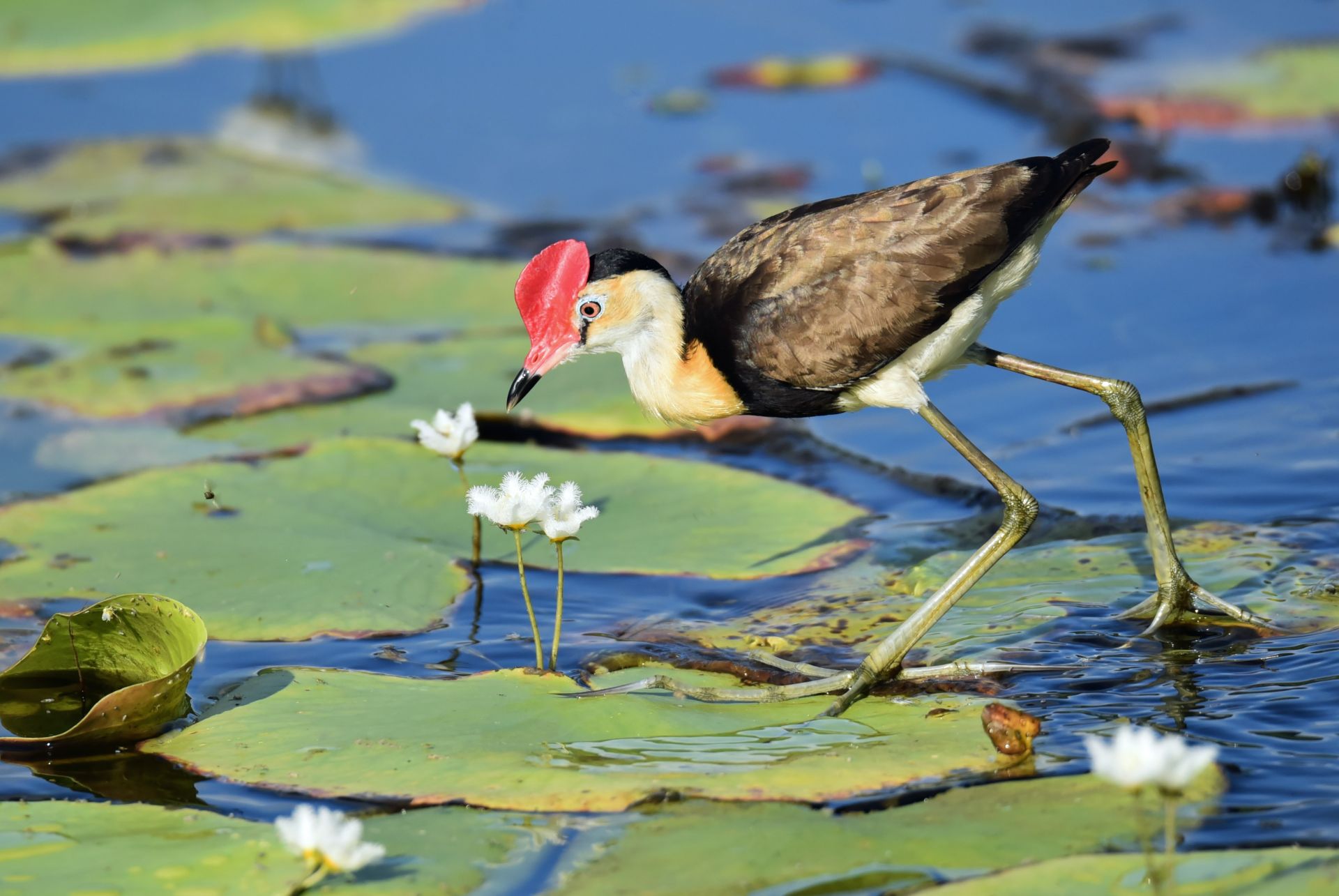Media Releases
Repairing wetlands using big business

Researchers believe an innovative new scheme could help save and restore threatened wetlands, such as those that are crucial to the health of the Great Barrier Reef.
The research, from a James Cook University-led international multi-disciplinary collaborative team, was recently published in Cell’s One Earth journal.
Dr Adam Canning and Dr Nathan Waltham from JCU’s Centre for Tropical Water and Aquatic Ecosystem Research, and Dr Diane Jarvis from JCU’s College of Business, Law & Governance, say that although wetlands support high biodiversity and many benefits to humans (ecosystem services), they are one the most damaged ecosystems globally.
“Wetlands provide about $47.4 trillion a year worth of ‘ecosystem services’ globally and support immense biodiversity, yet they face widespread drainage and pollution, and large-scale wetlands restoration is urgently needed,” said lead investigator Dr Canning.
He said previous estimates indicate that 54-57% - and possibly as much as 87% - of global wetlands have been lost to agricultural, urban and industrial expansion.
Dr Canning said there are many schemes that will fund the restoration of wetlands for their ecosystem services (such as fishing, providing clean water, storing carbon, recreation and cultural values), but they differ a lot in their ability to actually deliver wetland restorations, particularly at large-scale.
“In our paper, we propose using Common Asset Trusts (CAT) as a vehicle for navigating payment for ecosystem service schemes as we believe this approach increases financial viability, and promotes greater efficiency and efficacy in restoring wetlands and their services,” Dr Canning said.
He said a CAT would invest in, restore and manage wetlands as common property, aiming to maximise the dividends arising from the ecosystem services that are distributed to the public.
“This avoids the need to rely solely on the privatisation of a single ecosystem service, such as the generation and sale of carbon credits.
“These approaches are often financially risky, difficult and expensive to reliably quantify, and may result in wetland management that advances some values at the expense of others.
“Many services provided by wetlands are enjoyed widely and cannot be discretely traded. Valuing wetlands as sole providers of discretely traded goods and services is like trying to fit a square peg in a round hole,” Dr Canning said.
Dr Jarvis says CATs have multiple benefits, including financial resilience, high flexibility in investment, ability for long-term and strategic planning, they allow for inclusive and deliberative decision-making, and benefit from well-established legal mechanisms and conflict resolution procedures designed for trusts.
“They also allow a coordinated framework for strategic planning; providing a platform for high levels of collaboration and bringing multiple individual projects under a single unit to efficiently and strategically achieve objectives,” Dr Jarvis said.
Dr Canning says investors in a Wetland Investment Fund linked to a CAT would receive dividends in credits (for example carbon, water quality and biodiversity), which they could use directly in the case of polluting industries (such as airlines using carbon credits), sell if they were a professional investor seeking a monetary return, or reinvest in the trust if they were an environmental NGO.
Dr Waltham said there was great potential for a CAT to be established in the Great Barrier Reef catchment, as wetlands improve water quality and fisheries of the Great Barrier Reef, and help more broadly in the fight against climate change.
Funding for this research project was provided through the Australian Government National Environment Science Program, Tropical Water Quality Hub, which was awarded to Dr Waltham.
Paper:
Canning, A., Jarvis, D., Costanza, R., Hasan, S., Smart, J, Finisdore, J., Lovelock, C., Greenhalgh, S., Marr, H., Beck, M., Gillies, C., & Waltham, N. (2021). Financial incentives for large-scale wetland restoration: beyond markets to common asset trusts. One Earth 4, 937–950. DOI: https://doi.org/10.1016/j.oneear.2021.06.006
Acknowledgements:
Drs Adam Canning, Diane Jarvis and Nathan Waltham thank their collaboration partners for their contribution towards the study.
Dr Adam Canning
E: adam.canning@jcu.edu.au
T: +61 7 4781 4292